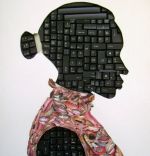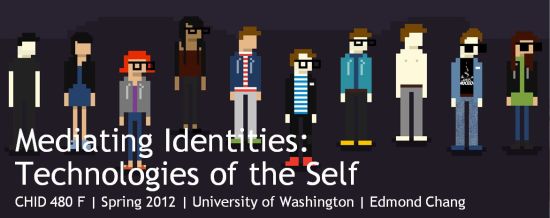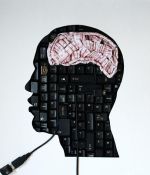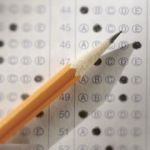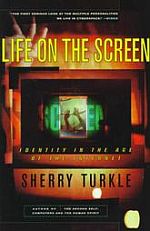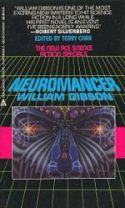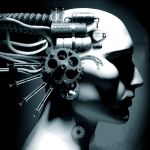|
CHID 480 F Download the course policies and syllabus (PDF).
"Technology is neither good nor bad, nor even neutral. Technology is one part of the complex of relationships that people
form with each other and the world around them; it simply cannot be understood outside of that concept."
"This is just the beginning, the beginning of understanding that cyberspace has no limits, no boundaries." |
CARLA KAPLAN, in Keywords for American Cultural Studies, frames the difficulty of defining "identity," saying, "One of our most common terms, 'identity' is rarely defined" (123). Rather, in everyday language, we have a "personal identity" and have, depending on situation, multiple "social identities." Kaplan continues, "Personal identity is often assumed to mediate between social identities and make sense of them. Whereas our social identities shift throughout the day, what allows us to move coherently from one to another is often imagined to be our personal identity, or 'who we are'--our constant" (123). Outlined by the above definitions of identity is a tension, even contradiction: one the one hand, identity is seemingly fixed, intelligible, innate to an individual, or on the other, something that is performed, constructed, contextual, and perhaps changeable. Our class will take up this unsettledness of identity and investigate its intersections with and co-constitution by technology. In other words, in a world of increasing technological ubiquity, how might we imagine and define a "technological identity?" What are the relationships between identity and technology? How does technology shape our identity or identities and vice versa? WE WILL EXPLORE everyday technologies like fashion and consumer culture, cyberspace technologies like video games and social networking sites, and body modification technologies like cosmetic surgery and bioengineering. Through literature, scholarship, digital media, video games, and real world examples, our class will trace and trouble theoretical and vernacular understandings of identity and technology. We will engage critical questions about subjectivity, embodiment, race, gender, sexuality, (dis)ability, post- and transhumanism, and how these things link up to discourses and ideologies about individuality, personhood, and power. Texts may include in whole or in part: Michel Foucault, Dick Hebdige, John Perry Barlow, Sherry Turkle, Allucquere Rosanne Stone, Howard Rheingold, William Gibson, Maureen McHugh, Alan Turing, Julian Dibbell, Donna Haraway, Thomas Foster, Lisa Nakamura, Paul Gilroy, Judith Butler, Octavia Butler, N. Katherine Hayles, and others.
A REQUIREMENT for this class is a well-developed curiosity and a willingness to explore
and interrogate interdisciplinary lines of inquiry. Our seminar will be organized like a graduate-level readings seminar
engaging literature, scholarship, old and new media, and social networking technologies. Moreover, you will produce short,
one-page, weekly critical responses and blog posts. Students seeking W-Credit will be accommodated.
|
"Imagination is more important than knowledge."
Required Course Texts & Materials
• CHID 480 F Course Reader (available at Ave Copy, 4141 Univ. Way NE @ 42nd) |
|
|
Course Requirements
Identity Log (30%)
"An idea that is not dangerous is unworthy of being called an idea at all."
"The Singularity denotes an event that will take place in the material world, the inevitable next step in the evolutionary
process that started with biological evolution and has extended through human-directed technological evolution. However, it
is precisely in the world of matter and energy that we encounter transcendence, a principal connotation of what people
refer to as spirituality." |
Requirements & GradingYour grade should not be the sole exigence or motivation for this class. It is the hope of the course that you walk away from the class with something more. Find some pleasure and some edification and some knowledge from this class (or any class really) and success is usually not far behind. With that in mind, your grade will be a reflection of engagement, effort, close reading, critical thinking, writing, and participation. Identity Log (30%) Over the course of the quarter, you will keep and maintain a weekly "identity log" or "iLog," recording, detailing, and thinking about your own identities and identifications, particularly those mediated by and through technologies. Your "iLog" will function as a kind of identity workbook, an analytical and metacognitive journal, and reading notes, connecting your observations and experiences to the texts, theories, and ideas of the class. Periodically, you will be given specific log prompts, provocations, and experiments, and you will share your logs in class, on the class blog, or via the class's social media. These logs are more than just summaries or personal reactions and will be evaluated on completion, clarity, focus, coherence, critique, and your ability to concisely formulate arguments. Midterm Exam (20%) & Final Exam (20%) You will have two substantive exams that will require you to make connections, to think critically and analytically, and to precisely and concisely address the theoretical and intellectual goals of the class. In Week Five, you will be given a mandatory take-home midterm exam that will ask you to draw upon the first half of the quarter's readings, discussions, and critical ideas. Similarly, in Week Ten, you will be given a take-home final exam that will focus on the second half of the quarter's texts, theories, and critiques. The format of both the midterm and final will be short essay answers. Participation and Preparedness (30%) Preparedness and participation forms a large component of your final grade. It is essential that you prepare for class, attend class, and participate. Missing class may seriously compromise your ability to do well in this class. Again, negative participation will hurt your participation grade. Participation is determined by 1) your respectful presence in class, 2) your willingness to discuss, comment, and ask questions, 3) your preparation for class, which includes bringing required materials to class and doing all of the assigned reading for class, 4) your engagement in group work, 5) your care and use of the class blog and social media (bookmark the addresses, check and comment regularly, think of these sites as an extension of class), and 6) your interactions with me and other students. Finally, failure to turn i n homework, incomplete assignments, or late papers will negatively impact your participation grade. W-Credit
In addition to the Identity Log and take-home exams, if you are seeking W Credit for the class, you be required to
complete a final major paper. See me at the start of the quarter for details. In total, you must produce a minimum of
10-15 pages of formal, revised writing and earn a minimum of a 2.0 on the Major Paper to get W-Credit.
|
Download the course policies and syllabus (PDF).
"The cyborg is a kind of disassembled and reassembled, postmodern collective and personal self. This is the self feminists must code."
"I don't pretend we have all the answers. But the questions are certainly worth thinking about."
"Perhaps it's impossible to wear an identity without becoming what you pretend to be."
|
|
|
|
Attendance
Attendance is strongly recommended. If you are absent, you miss the explanation of an assignment, the discussion
of a reading, the chance to play and participate, and overall, the class as a community of learning. Also, you are
expected to be in class on time. Class will start immediately at the appointed time. In the first minutes of class I
may make important announcements, establish the agenda for the class meeting, begin immediately with an important lesson,
or field questions. If you come in after we start class, even by only a few minutes, you are late and we will mark you
as such. Chronic or conspicuous attendance problems will negatively affect your overall participation grade for the
class. If you know you are going to miss class, please let me know ahead of time (via email), if you can, and make
any necessary arrangements. And when you do miss class, always find another student to get class notes and see me in
order to make up missed work in a timely manner.
|
|
|
|
Paper Formatting 1) 1" margins top, bottom, left, and right on each page. 2) Double-spaced for formal papers, using Times Roman no larger than 12 pt. 3) Number all pages except for the first page in the top right-hand corner; no title pages; bibliography and figures do not count toward minimum page requirements. 4) Stapled once at the top left corner (do not use fancy report covers or binding gadgetry). 5) At the top of the first page in a single-spaced block, include your name, your course section, my name, date, and title. 6) Correct MLA citations and bibliography (later assignments may require annotations); papers with fundamental citation problems will not receive credit. 7) Include any exercises or additional material required by the assignment. |
Assignment FormatAll papers must be typed or produced on a word processor. All documents should be saved in Microsoft Word format; if you do not have access to Word, then save your documents in RTF or Rich Text Format. All papers must follow the manuscript format outlined by the assignment. Unless otherwise noted, all papers must use MLA citation and documentation conventions. All papers must be neatly printed (in black), stapled in the top, left-hand corner if necessary, and should not be three-hole punched. Papers that do not follow these format guidelines will not be accepted. They will be returned unread to you. Papers will be regarded as late until they are resubmitted in the proper format. Always make a backup copy of every paper you turn in, lest you be one of the unhappy people whose paper is eaten by the computer. You may even want to take the precaution of e-mailing your paper to yourself as an attachment at least a couple of times during the drafting process and certainly BEFORE you exit the document for the last time and leave the computer lab, your friend's computer, or even your own computer. This way, even if you lose your disc or your paper gets mysteriously erased, you still have a copy in your e-mail files.
Evaluation RubricOver the course of the quarter, your assignments will receive feedback and comments that will identify what you are doing well and what still needs improvement. Your grades assess your fulfillment of the assignment, the quality of work, detail, analysis, and argumentation, overall effort, and finally, style, polish, and risk taking. Consider the following evaluation rubric as signposts or a kind of legend to your progress and evaluation:
• Outstanding (3.7-4.0): Offers a very highly proficient, even memorable demonstration
of the trait(s) associated with the course or assignment goal(s), including some
appropriate risk-taking and/or creativity. |
Late Assignments All assignments must be done completely and turned in on time. Lateness will subtract from your assignment's final grade and work must be turned in as soon as possible. Note that I will not comment on late work. However, you still need to complete late work for a complete portfolio. If you miss class on the due date of a paper, you must notify me and make arrangements to get the paper to me as soon as possible. Unless previously arranged, I do not accept assignments via email. Remember that a paper has not been officially handed in until it is in my hands. Never turning anything in late is always the best policy.
|
|
|
Contact Ed
Office: Download the course policies and syllabus (PDF).
|
Finding HelpMy office and office hours are listed at the front of the course policies. I am available during that time and by appointment to help you. I encourage you to come see early in the quarter even if it is just to talk about the class, about the assignments, or about school in general. I may ask you to meet with me when I think a conference would be useful. My office is located in the ground floor of Padelford Hall (northeast of the HUB), Room B-33. See http://www.washington.edu/home/maps/northcentral.html?pdl.
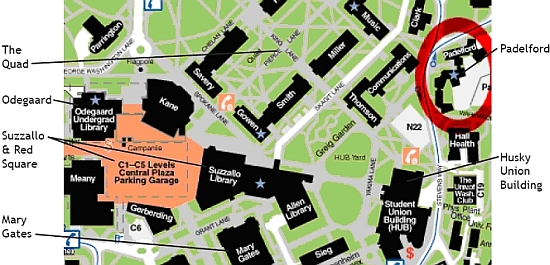
I am also available electronically by email and the course blog. Email and the blog are the best means of contacting me. I will do my best to answer your emails and blog posts, usually within twenty-four hours. If there is an emergency and you need to reach me, please contact the Undergraduate English office in A-2H&G Padelford. Furthermore, when time permits, I will supplement my office hours with virtual hours via AOL Instant Messenger or Google Talk (nickname: EDagogy); if I am logged in, during reasonable hours, you are more than welcome to discuss the class or ask questions. Please, when you initiate an IM conversation for the first time, please identify yourself to me; also, be patient because my responses may not be immediate. You can find additional writing help at the Odegaard Writing and Research Center (OWRC), which is a good resource for this class and other classes. OWRC is located on the third floor of Odegaard Library and offers a variety of services including help with papers, brainstorming ideas, help with reading, and research. See http://depts.washington.edu/owrc/ for more information. Moreover, the Center for Learning and Undergraduate Enrichment (CLUE) is also a good resource. CLUE is located in Mary Gates Hall Commons and offers tutorial sessions for most freshman lecture courses, skills courses, access to computer labs, and drop-in centers for math, science and writing. See http://depts.washington.edu/clue/ for more information.
Further resources, both on- and off-campus can be found on the Links page of the course website:
http://staff.washington.edu/changed/480/links.html.
|
"The sky above the port was the color of television, tuned to a dead channel."
"Humanity stands to be profoundly affected by science and technology in the future. We envision the possibility of broadening
human potential by overcoming aging, cognitive shortcomings, involuntary suffering, and our confinement to planet Earth."
"You are not your job, you're not how much money you have in the bank. You are not the car you drive. You're not the contents of your
wallet. You are not your fucking khakis. You are all singing, all dancing crap of the world." |
|
|
"My body is my journal, and my tattoos are my story."
"Accursed creator! Why did you form a monster so hideous that even YOU turned from me in disgust? God, in pity, made man
beautiful and alluring, after his own image; but my form is a filthy type of yours, more horrid even from the very resemblance.
Satan had his companions, fellow devils, to admire and encourage him, but I am solitary and abhorred." |
Academic DishonestyPlagiarism, or academic dishonesty, is presenting someone else's ideas or writing as your own. In your writing for this class, you are encouraged to refer to other people's thoughts and writing -- as long as you cite them. Many students do not have a clear understanding of what constitutes plagiarism, so feel free to ask questions about these matters at any time. Plagiarism includes:
• a student failing to cite sources of ideas If you have any doubt about how to cite or acknowledge another's writing, please talk to me. It is always better to be safe than sorry. As a matter of policy, any student found to have plagiarized any piece of writing in this class will be immediately reported to the College of Arts and Sciences for review. For further information, please refer to UW's Student Conduct Code at http://www.washington.edu/students/handbook/conduct.html. Play it smart, don't plagiarize!
AccommodationsIf you have a registered disability that will require accommodation, please see me immediately. If you have a disability and have not yet registered it with Disability Resources for Students in 448 Schmitz Hall, you should do so immediately. Please contact DRS at 206-543-8924 (Voice) or 206-543-8925 (V/TTY) or 206-616-8379 (FAX) or via their website at http://www.washington.edu/admin/ada/dss.htm. I will gladly do my best to provide appropriate accommodation you require.
UW SafeCampusPreventing violence is everyone's responsibility. If you're concerned, tell someone. For more information visit the SafeCampus website at http://www.washington.edu/safecampus and keep the following in mind:
• Always call 911 if you or others may be in danger. |
"If one is lucky, a solitary fantasy can totally transform one million realities."
"Every time I see an adult on a bicycle, I no longer despair for the future of the human race." |
|
|
|
© 2007-12 Edmond Chang. All original material. All rights reserved. Email the webmaster of this site. These pages are best viewed with Mozilla Firefox or Internet Explorer. Open your browser to the largest viewable area. These pages are hosted by the University of Washington Computing & Communications system. |
|
